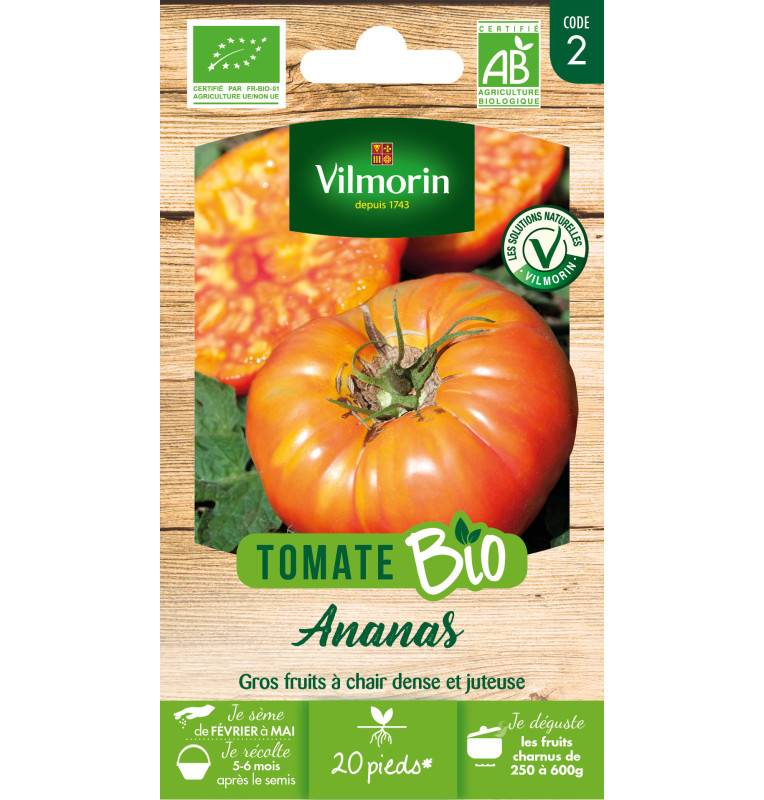


World's Fastest Online Shopping Destination
World's Fastest Online Shopping Destination
This variety, old and late, produces large yellow-orange fruits, sometimes marked with red, slightly flattened and cotelé. Its flesh is juicy and fragrant and of excellent taste quality.
 Garanties sécurité(à modifier dans le module "Réassurance")
Garanties sécurité(à modifier dans le module "Réassurance") Politique de livraison(à modifier dans le module "Réassurance")
Politique de livraison(à modifier dans le module "Réassurance") Politique retours(à modifier dans le module "Réassurance")
Politique retours(à modifier dans le module "Réassurance")This variety, old and late, produces large yellow-orange fruits, sometimes marked with red, slightly flattened and cotelé. Its flesh is juicy and fragrant and of excellent taste quality. Appreciated for its low seed content, it looks like a slice of pineapple, when cut.
Ancient variety
Huge and coteed fruits
Yellow dress and pulpit
Seeds from a crop that complies with the rules of organic farming
Indian eye and marigold, sown near tomatoes, are known for their strong smell, able to scare away nematodes, aphids, flea beetles and other parasites fond of tomato plants or their roots. The substance released by their feet blocks the development of nematode larvae, which cause damage to the roots. Capuchin, on the other hand, is a real aphid magnet. They love its stems, leaving behind the neighbouring plants. Basil does not sublimate the tomato only in the kitchen, accompanied by mozzarella. It improves its flavour in the garden, provided it is planted close to it. The same is true of parsley, mint or sage. Basil, sage, chives and garlic would also have a preventive role against mildew and other cryptogamic diseases (caused by a fungus). The proximity of the tomato is appreciated by leeks, asparagus, peas, carrots, lettuce or radishes, which take advantage of its shade without depleting the resources that the tomato plants need in the soil. Cabbage is also a good combination, as the tomato protects it from the pierid, a butterfly that causes significant damage to cabbage plants. As Solanaceae, tomatoes hate to be next to plants from the same family, such as potatoes, peppers or eggplants. The diseases of one can easily be transmitted to others. Beetroot and fennel also do not appreciate the company of the tomato.
Family: POTAGER SEMENCES
Latin name: Solanum lycopersicum
Category: BIO / Natural solutions VILMORIN
Hybrid: NO
Getting: NO
Type: Vegetable Fruit
Sowing period: February to May
Harvest period: July to October
Exposure: Sun
Watering: Strong
Net weight in g: 0.2
Floor: Light, soft, fresh and well-smoked.
T-ground: 18 C mini
No. Seeds: 1 g - 300 seeds
Phytosanitary Passport / Plant Passport
Yield: Up to 2-4 kg/foot
FR-RH00867
Up to 20 feet
